
IEEE Transactions on Signal and Information Processing over Networks
Scope & Guideline
Innovating Connections: Where Signal Meets Network.
Introduction
Aims and Scopes
- Distributed Signal Processing:
Research on algorithms and methodologies designed for processing signals across distributed networks, focusing on efficiency, scalability, and fault tolerance. - Networked Control Systems:
Study of control strategies and algorithms tailored for systems that operate over networks, addressing challenges like delays, packet loss, and security. - Optimization Techniques:
Exploration of optimization methods applicable to signal processing and networked systems, including decentralized and federated learning approaches. - Robustness and Security:
Investigations into resilient systems that can withstand adversarial attacks and maintain performance in the face of uncertainties and network failures. - Graph Signal Processing:
Research on methods for processing signals defined on graph structures, including applications in social networks, sensor networks, and communication networks.
Trending and Emerging
- Federated Learning and Privacy-Preserving Techniques:
An increasing focus on federated learning models that prioritize privacy and data security in distributed systems, reflecting growing concerns over data protection. - Robustness Against Cyber Attacks:
Research addressing the resilience of signal processing systems against cyber threats and attacks, particularly in the context of critical infrastructure and sensor networks. - Event-Triggered and Adaptive Control:
A rise in studies on event-triggered methods and adaptive control strategies that optimize communication and processing in dynamic environments. - Graph-Based Approaches:
Emerging research on graph signal processing techniques that leverage the structure of networks for better signal recovery and data representation. - Multi-Agent Systems and Consensus Algorithms:
A notable increase in the application of consensus algorithms in multi-agent systems, particularly in scenarios requiring cooperation under uncertainty.
Declining or Waning
- Traditional Centralized Approaches:
There is a noticeable shift away from centralized processing techniques as the focus moves towards distributed and decentralized methodologies, reflecting the evolving nature of networked systems. - Static Network Models:
Research concentrated on static or fixed network topologies is becoming less frequent, as dynamic and adaptive network models gain more relevance in current studies. - Basic Signal Processing Techniques:
Fundamental signal processing methods are being overshadowed by more complex, application-driven approaches that consider network effects and real-world constraints.
Similar Journals
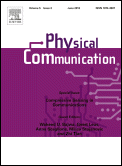
Physical Communication
Exploring the Dynamics of Communication SystemsPhysical Communication is a leading academic journal published by Elsevier, focusing on the innovative field of electrical and electronic engineering. With an ISSN of 1874-4907 and ranking in the Q2 category for 2023, this journal is recognized within the top tiers of its discipline, currently holding the 260th rank out of 797 in Scopus rankings, and situated in the 67th percentile. The journal seeks to disseminate high-quality research articles that explore various aspects of physical communication technologies and methodologies, providing a vital platform for academia and industry practitioners alike. Although it does not currently operate on an open access basis, the journal's emphasis on rigorous peer-review and high-impact content ensures that it remains a cornerstone for advancements in understanding the dynamic interplay between physical principles and communication technologies. Based in the Netherlands since its inception in 2008, Physical Communication aims to foster discussions that drive innovation in communication systems, thereby serving as an essential resource for researchers, professionals, and students dedicated to pushing the boundaries of this exciting field.

Problems of Information Transmission
Pioneering Research in Transmission TechnologiesProblems of Information Transmission, an esteemed journal published by PLEIADES PUBLISHING INC, serves as a critical platform for scholarly discourse in the fields of computer networks, communications, computer science applications, and information systems. Established in 1972 and resuming publication from 2005 to 2024, this journal provides a rigorous peer-reviewed environment for researchers to present their findings, methodologies, and innovative applications. With a noteworthy impact factor and categorized as Q3 in several relevant fields in 2023, it ranks within the 30th percentile amongst its peers, indicating its established presence in the academic community. Although the journal is not open access, it remains an essential resource for professionals and students seeking to explore contemporary challenges and advancements in information transmission. For those pursuing knowledge in these dynamic areas, Problems of Information Transmission represents a significant and authoritative source of cutting-edge research and insights.
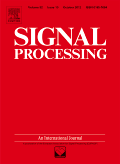
SIGNAL PROCESSING
Exploring Breakthroughs in Signal TechniquesSIGNAL PROCESSING is a premier academic journal published by Elsevier, dedicated to advancing the field of signal processing. With an impressive impact factor and ranked in the Q1 category across various disciplines such as Computer Vision and Pattern Recognition, Control and Systems Engineering, Electrical and Electronic Engineering, and more, the journal stands as a highly respected resource within the academic community. Since its inception in 1979, SIGNAL PROCESSING has provided a platform for researchers and professionals to disseminate their findings on innovative algorithms, techniques, and applications related to signal analysis and processing, making significant contributions to both theoretical and practical aspects of the discipline. The journal is accessible through institutional subscriptions, ensuring that scholars and students can engage with cutting-edge research and foster advancements in technology and methodology. Readers can expect to find a wealth of articles that promote critical discourse and facilitate further research, making SIGNAL PROCESSING an essential reference for anyone involved in the fields of signal processing and related areas.

Science China-Information Sciences
Shaping the Future of Computer Science Research.Science China-Information Sciences is a prestigious academic journal published by SCIENCE PRESS, dedicated to advancing knowledge in the field of information sciences and computer science. Established in China, the journal has gained a remarkable reputation, with a 2023 category quartile ranking of Q1 in Computer Science (miscellaneous) and an impressive Scopus rank of #16 out of 232 in General Computer Science, positioning it within the 93rd percentile. The journal embraces a broad spectrum of topics, from theoretical frameworks to practical applications, providing a platform for researchers, professionals, and students to disseminate their findings and engage with the latest advancements in the field. With open access options available, Science China-Information Sciences ensures that innovative research is accessible to a global audience, fostering collaboration and interdisciplinary dialogue. The journal not only reflects the evolving landscape of information sciences but also plays a pivotal role in shaping future research directions.
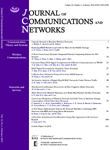
JOURNAL OF COMMUNICATIONS AND NETWORKS
Pioneering Insights in Computer Networks and CommunicationsJOURNAL OF COMMUNICATIONS AND NETWORKS, published by the Korean Institute of Communications Sciences (KICS), is a leading academic journal that has been at the forefront of the fields of Computer Networks and Communications as well as Information Systems since its inception in 1999. With a strong commitment to advancing research in these critical areas, this journal has achieved a prestigious Q1 ranking in both domains as of 2023, reflecting its significant impact and innovative contributions to the field. The journal features original research, review articles, and technical notes that address the latest advancements in communication technologies, network architecture, and data management strategies. As a vital resource for researchers, practitioners, and students, it not only disseminates valuable findings but also fosters collaboration and knowledge exchange among diverse disciplines within the communications landscape. With a consistent annual volume, the journal continues to shape the future of communications science and offers authors an esteemed platform to showcase their work.
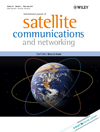
INTERNATIONAL JOURNAL OF SATELLITE COMMUNICATIONS AND NETWORKING
Exploring New Dimensions in Satellite TechnologyInternational Journal of Satellite Communications and Networking is a premier academic journal published by Wiley, dedicated to advancing knowledge in the fields of satellite communications and networking. With an ISSN of 1542-0973 and E-ISSN 1542-0981, this journal has been a significant contributor to the discourse surrounding electronic and media technologies since its inception in 2003. Recognized for its rigorous peer-review process, it has achieved notable rankings, placing in the Q2 and Q3 quartiles across various categories, highlighting its impact and relevance in the competitive domains of Engineering and Media Technology. Researchers, professionals, and students can benefit from access to cutting-edge research and innovations in satellite communications, as it ranks #18/63 in Engineering Media Technology and #323/797 in Electrical and Electronic Engineering. The journal's commitment to fostering a deeper understanding of networking technology makes it an essential resource for anyone looking to stay at the forefront of this rapidly evolving industry.

Journal of Signal Processing Systems for Signal Image and Video Technology
Unveiling Cutting-edge Developments in Signal Processing Systems.Journal of Signal Processing Systems for Signal Image and Video Technology, published by SPRINGER, is a leading interdisciplinary journal dedicated to advancing research and development in the fields of signal processing, image processing, and video technology. With an ISSN of 1939-8018 and an E-ISSN of 1939-8115, this journal emphasizes both theoretical and practical applications, boasting a wide scope that ranges from control and systems engineering to hardware architecture. Since its inception in 2008, it has gained a solid reputation, reflected in its 2023 category quartile rankings—including Q2 in Control and Systems Engineering and Q3 in Signal Processing—demonstrating its significance within the academic community. The journal is underpinned by a commitment to open access, promoting broad dissemination of knowledge, and is particularly vital for researchers, professionals, and students looking to contribute to and stay updated in these rapidly evolving fields. With ongoing explorations into the convergence of technology and methodology until 2024, the journal stands as a crucial resource for the latest innovations and discussions in signal processing systems.
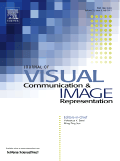
JOURNAL OF VISUAL COMMUNICATION AND IMAGE REPRESENTATION
Bridging Disciplines through Innovative Visual MediaJOURNAL OF VISUAL COMMUNICATION AND IMAGE REPRESENTATION, published by Academic Press Inc Elsevier Science, is an influential platform dedicated to the realms of visual communication, media technology, and advanced image representation. With a strong focus on interdisciplinary approaches, this journal aims to foster the exchange of innovative ideas among researchers and professionals in the fields of computer vision, image processing, and signal processing. Recognized for its significance, it boasts an impressive impact factor within its category quartiles; notably, it ranks Q2 in Computer Vision and Pattern Recognition and Electrical and Electronic Engineering, while achieving Q1 in Media Technology. Based in the United States, the journal not only provides valuable insights into the latest developments from 1990 to 2024 but also encourages cutting-edge research that enhances multimedia systems and user interactions. As a vital resource for students, researchers, and industry professionals alike, the journal ensures a robust understanding of visual information processing, critical for navigating today's digital landscape.

Radio Electronics Computer Science Control
Unleashing Potential: Where Electronics and Computing ConvergeRadio Electronics Computer Science Control is a distinguished academic journal published by the ZAPORIZHZHYA NATIONAL TECHNICAL UNIVERSITY that has been committed to advancing the fields of radio electronics, computer science, and control systems since its inception in 1999. With an open access model, the journal ensures that high-quality research is freely available to a global audience, fostering collaboration and innovation among researchers, professionals, and students alike. While the current impact factor is not listed, the journal remains an essential resource for those seeking to explore cutting-edge developments in technology and engineering, contributing significantly to the interdisciplinary dialogue among scholars in these domains. The journal publishes original research articles, reviews, and case studies, making it a vital platform for disseminating knowledge and advancing scientific understanding in the rapidly evolving landscape of computer and control systems. Located in Zaporizhzhya, Ukraine, the journal serves as a beacon of scholarly communication in Eastern Europe and beyond.

EURASIP Journal on Wireless Communications and Networking
Exploring New Horizons in Wireless TechnologyThe EURASIP Journal on Wireless Communications and Networking, published by Springer, stands as a pivotal platform dedicated to advancing the field of wireless communications and networking. With an ISSN of 1687-1472 and E-ISSN of 1687-1499, this Open Access journal has been disseminating high-quality research since 2004, ensuring broad accessibility for scholars and professionals worldwide. Maintaining an esteemed position in the academic community, it is classified in the Q2 quartile for 2023 across critical categories including Computer Networks and Communications, Computer Science Applications, and Signal Processing. The journal's performance is reflected in its Scopus rankings, which place it in the 73rd percentile for Computer Networks and Communications and the 72nd percentile for both Computer Science Applications and Signal Processing. With a focus on innovative research and practical applications, the EURASIP Journal is an essential resource for anyone seeking to contribute to or stay informed in the dynamic landscape of wireless communication technology.